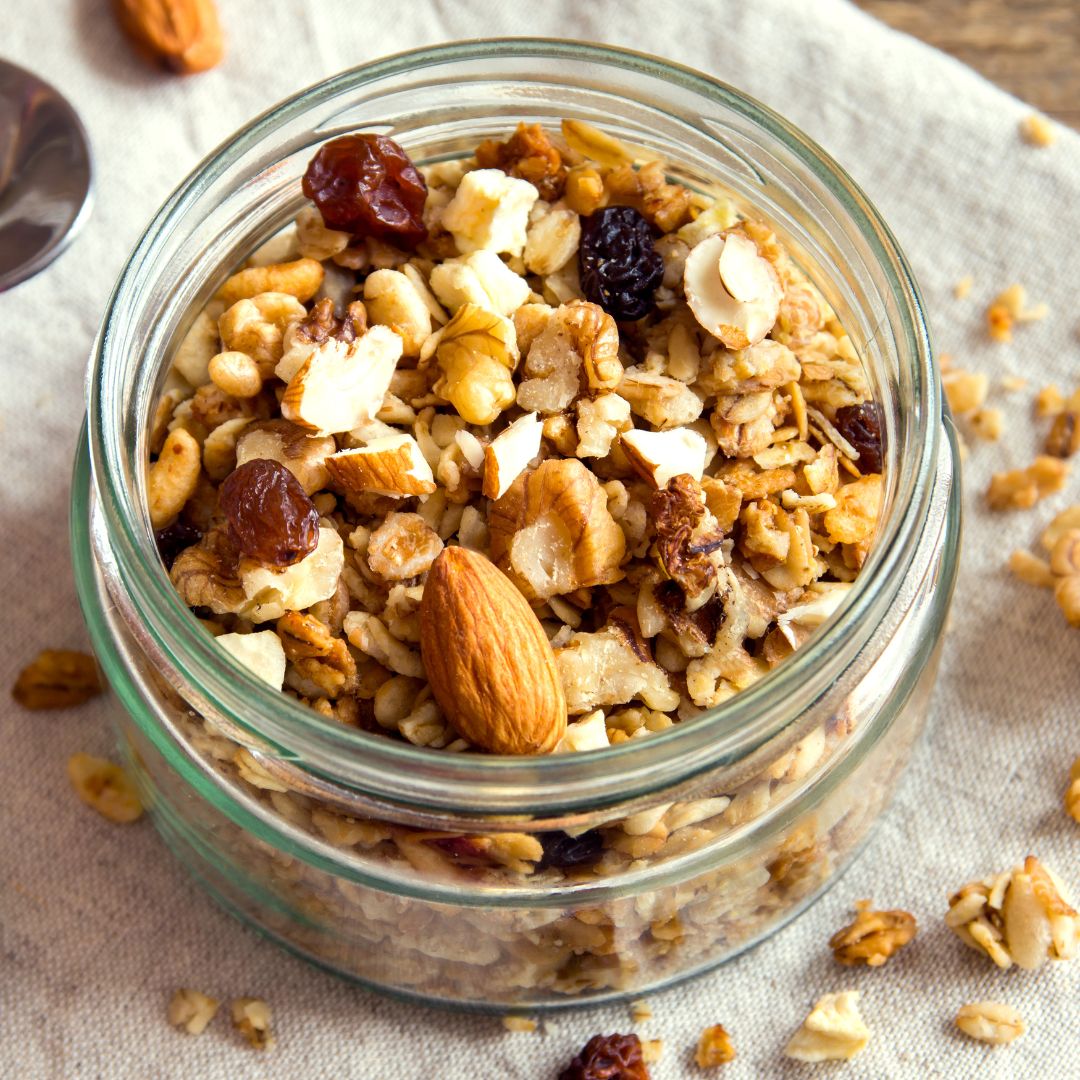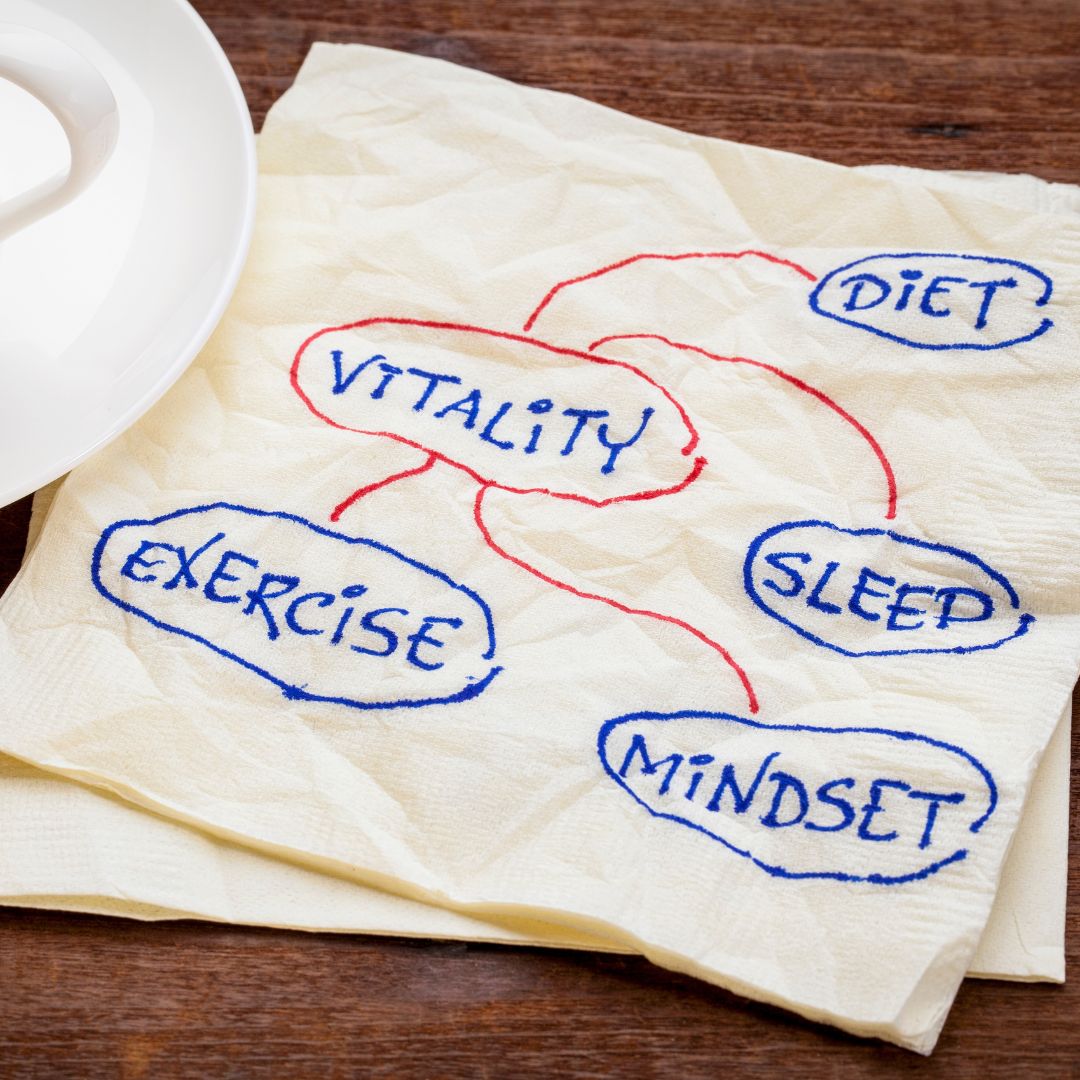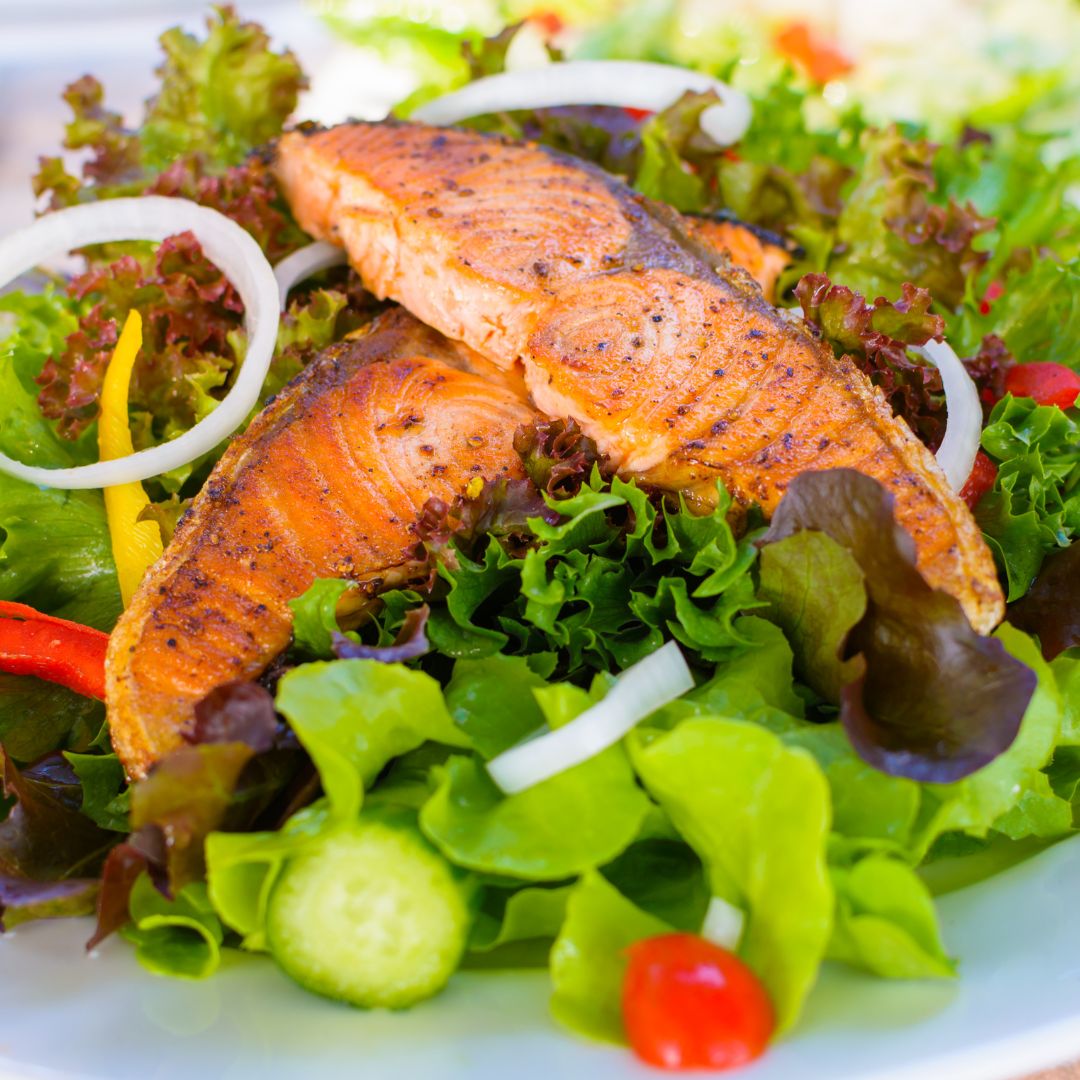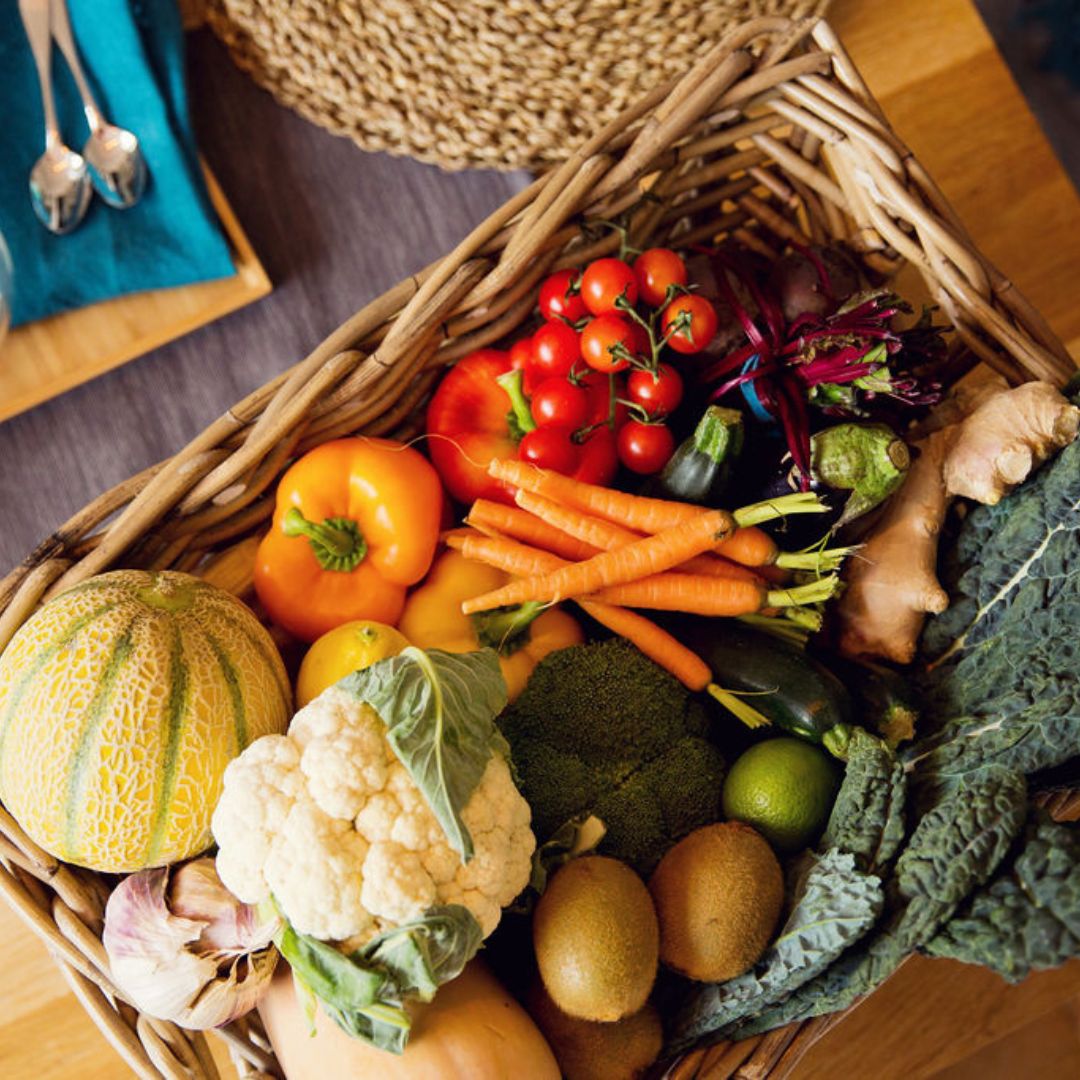
Paleo Granola
This is a healthy, protein-rich breakfast, perfect for pairing with summer fruits and whole Greek or coconut yoghurt. Perfect for the warmer weather!
Makes approximately 12 servings
Ingredients:
140g almonds
125g cashews
35g pumpkin seeds
35g sunflower seeds
35g unsweetened coconut flakes
40g coconut oil
1 tsp vanilla extract
1 tsp cinnamon
1 tsp sea salt
Method:

Lifestyle Changes to Improve Your Mood
Exercise – Exercise plays a big part in beating the blues
A number of studies, in which people exercised for 30 to 60 minutes, 3 to 5 times a week, found a drop of around 5 points in their Hamilton Rating Depression Scale – more than double what you’d expect from anti-depressants alone.
If you are feeling down and de-motivated, it’s not easy to get started on exercise: but the benefits are worth it.
Exercise increases blood flow to the brain and raises levels of the brain chemicals serotonin and dopamine. Higher serotonin levels make us feel good. Dopamine helps create a sense of motivation. Natural light also stimulates serotonin.
Exercise helps you to sleep, because it can “burn off” excess adrenalin. It helps to balance blood sugar and lose weight and that, in turn, improves your mood and motivation. When you get started, aim for 20 minutes of exercise five days a week, preferably outdoors. If you are significantly overweight, this could be brisk walking – 30 minutes a day would be better.
Find something you like doing, preferably in a pleasant area, and with other people. It’s great to have an exercise buddy. Exercise then becomes another means of focusing attention away from yourself and your preoccupations, and of spending enjoyable time with others. An exercise buddy also adds accountability. You are more likely to show up.
Following the low-GL mood boosting diet, and maybe taking the right supplements, will improve energy levels enough to give it a go.
Sleep – Mood and Sleep have a lot in common
Lack of sleep has a big effect on how you feel, and finding out how to sleep through the night and wake up refreshed could be the missing piece in getting you to feel a whole lot better.
The amino acid tryptophan is not only the raw material for serotonin but also for melatonin, a brain chemical that helps you sleep by controlling the sleep/wake cycle. It’s the brain’s neurotransmitter, which keeps you in sync with the earth’s day/night cycle. Jet lag, for example, happens when the brain’s chemistry takes time to catch up with a sudden time zone shift.
As you start to wind down in the evening, serotonin levels rise, and cortisol levels fall. As it gets darker melatonin kicks in.
But what can you do to improve your quantity and quality of sleep?
Provide more of the building blocks that make serotonin – tryptophan, an amino acid present in most protein-rich foods like chicken, cheese, tuna, tofu, eggs, nuts, seeds, and milk.
The conversion from tryptophan to serotonin requires folic acid, B6, vitamin C and zinc. These can be found in beef, broccoli, cashews, chicken, chickpeas, cauliflower, peppers, kale, kiwi, lamb, oranges,
parsley, pumpkin seeds, pineapple, salmon, spinach, turkey, and tuna.
SLEEP ACTION PLAN

Salmon Summer Salad
Salmon is excellent source of omega 3 fatty acids, which research shows can help to alleviate symptoms of low mood. This is a delicious recipe perfect for Spring.
Serves 2
Ingredients
2 salmon fillets
3 tbsp olive oil
1 x chicory heart - red is nice
10g parsley
juice of 1/2 lemon
1 tbsp capers
1/2 avocado 1
00g cherry tomatoes
20g red onion
50g rocket celery leaves
Method

Good Mood Foods
How we nourish our bodies has a profound effect on our mood. Here are my top foods to include… and what to avoid.
IN
OUT

Food and Mood
The link between physical health and what you eat is well understood, but did you know that what you eat has a huge impact on your mood and how you feel?
I wonder how we forgot about this connection, because it was common knowledge in times gone by. Way back when (think medieval times), people would eat quince, dates and elderflowers if they were feeling a little blue anduse lettuce and chicory as nature’s tranquilisers.
Modern science has extensively studied the impact of food on mood, and we now understand why food has such a positive (or negative) effect, and which foods we should be eating more (or less) of to support mental health.
Managing anxiety, stress, depression, and other mood disorders is complex, and there’s no one-size-fits all solution. But we know that the right diet and lifestyle plan combined with motivational coaching to help you every step of the way can be an enormous help.
The very edited highlight of the research into what you should eat to balance your energy and improve your mood is to follow a Mediterranean-style diet featuring plenty of whole, natural foods.
That also means learning to balance your blood sugar levels. Loss of blood sugar balance has a clear link to stress, anxiety, and depression. 50% of low mood is down to blood sugar imbalances. Learning how to become a master of your blood sugar balance is the secret to having more energy, a better mood and controlling your weight – and losing it if you need to.
Feeling more confident about the way you look is in itself an excellent way to boost feelings of self-worth. In the same way that eating well can positively influence mood, making poor food choices can have the opposite effect. Research by a team at Binghamton, New York, showed that young adults under 30 who ate fast food more than three times a week scored higher when it came to levels of mental distress. The same researchers found that those who ate meat fewer than three times a week had more mental health problems (potentially as the amino acid tryptophan found in meat is the precursor to the feel-good chemical serotonin).
Low mood affects up to 20% of us at any one time, so everyone is likely to experience some form of it at one time or another. Many periods of low mood can be almost eradicated by following some simple steps. Not only because this addresses many of the physical causes of low mood, but also because you are spending your time focusing on a positive action plan and learning new things rather than ruminating about problems.
To find out more about how a nutrition & lifestyle programme can help, why notbook a free call with me. Here’s the link.

Happy Tummy Foods
Some foods are excellent for supporting our digestion and here are some of my favourites that I suggest to clients on a regular basis:
Cruciferous vegetables
These smelly veg bring amazing health benefits on a number of different levels. Since we’re talking about foods that are helpful for your digestion, you should know that they contain compounds called glucosinolates, which are fermented by bacteria and used as fuel. They are prebiotic.
Examples:
Bok choy, broccoli, Brussels sprouts, cabbage, caulifiower, kale , rocket, spring greens, watercress.
Fermented foods
Fermented foods have a long tradition in some parts of the world, especially Asia, Africa and Eastern Europe. Bacteria (and sometimes beneficial yeasts) might be involved in the process and the result is an increase of good bacteria in the foods. You’ve probably heard of live or ‘bio’ yoghurt.
Some of these other probiotic foods might sound peculiar and a little ‘advanced’ for most regular people. However, they are now commonly found on supermarket shelves (you'll find them in the world foods aisle where the Oriental products are) and, while they might not be the kind of product you would usually go for, it is always worth experimenting. Kimchi, in particular, is often combined with chilli and other flavours and is far tastier than its name might suggest.
Examples include yoghurt, pickles (gherkins), sauerkraut, kimchi (fermented cabbage), tempeh (fermented soya beans), natto (fermented soya beans), miso soup (fermented soya beans), tamari soy sauce, buttermilk, some cheeses like cottage cheese, gouda, mozzarella and cheddar.
Fermented drinks
Like other fermented products, these were once only found in health food shops and were perhaps the prevail of people who ate a very clean and unprocessed diet.
These were a secret waiting for the masses to discover. Often flavoured with fruits, they really are delicious and do not taste 'worthy'. You'll find them in the chilled drinks section in most supermarkets.
Kombucha (fermented tea - sweet and fizzy but without sugar) and kefir (fermented dairy drink very much like a yoghurt drink) are examples.
The only way you’ll know if it’s for you is to try!
Fibre
Fibre is one of the best things to eat to support healthy digestion. Fibre is described as being either insoluble or soluble.
This is part of the plant wall in fruit and veg. It’s indigestible so it passes right through your system, sweeping up toxins and other waste products as it goes, and keeping you regular. The undigested fibre is also fermented by gut bacteria, producing the beneficial short chain fatty acids mentioned earlier.
YOU CAN FIND INSOLUBLE FIBRE IN:
Fruit and veg, beans and lentils, oats and wholegrain foods like brown rice and wheat.
This can be partially digested and is well-celebrated for its ability to reduce cholesterol in the blood and normalise blood sugar levels.
YOU CAN FIND SOLUBLE FIBRE IN:
Oats, veg, fruit (especially apples, pears, berries, and citrus fruits), beans and lentils.
Anti-Microbial Foods
Some foods exert a natural antibiotic or anti-fungal effect and can be useful for keeping nasties like pathogenic bacteria or unwelcome yeasts at bay.
These include caprylic acid found in coconut. Coconut oil is also a very good oil to use in cooking, especially at high temperatures.
Garlic contains the active ingredient allicin, which has historically proven itself to be an effective killer of both bacteria and viruses, making it a great immune-boosting ingredient. Use it raw wherever possible.
Olive oil – the oleic acid has anti-bacterial properties. Use it generously to dress salads and veg.
And we can’t have a list of the foods to add in, without looking at what we need to avoid for a happy tummy:
Sugar and refined carbohydrates
In same way there are things your digestive system loves, there are things it will not love you for. Sugar. That’s the number one thing to avoid, plus anything that contains added sugar.
Other things your tummy is not fond of include highly refined products like white rice, pasta, pastry and snacks like crisps and biscuits.
If you would like to take a look at your gut health – whether you have symptoms or would just like to be optimally well – why not book in a free call? You can book via the link here.
![]()
Please get in touch and find out more - I offer a free 30-minute exploratory call.